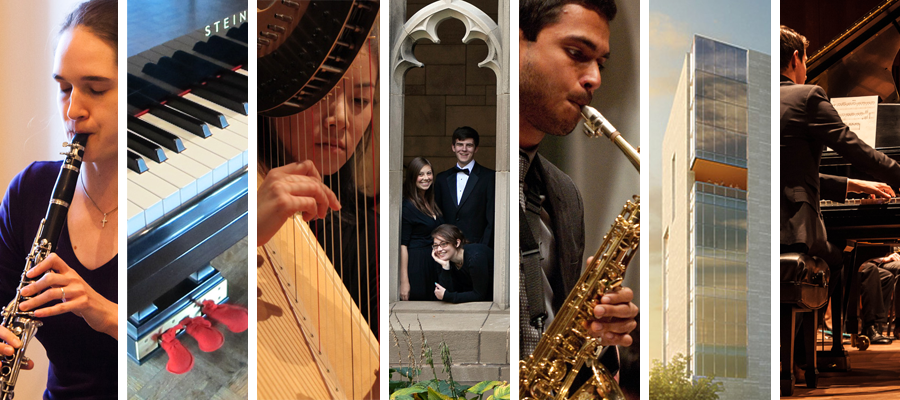Alumnus Ben Sutherland (A.M. ’97, Ph.D. ’01) is Assistant Professor of Audio Design & Production at Columbia College Chicago. He will perform with Howard Sandroff, composer and Director of the University of Chicago Computer Music Studio, on Monday, October 22 at 7 PM at Columbia College. See details
How do you feel UChicago prepared you for your career in music?
My work with the composition faculty helped refine and hone my compositional craft and process, informing micro-level decisions – such as contrapuntal, melodic, and rhythmic – as well as macro-level decisions – issues of large-scale harmony, rhythm, and form. My experiences at the UC also helped shape my identity as a composer and artist, strengthening my confidence level and trust in my vision and intuition as a composer.
My specialization in computer music and audio technology, which is a central feature of my creative, scholarly, and teaching work today, blossomed in the UChicago Computer Music Studios, growing from my work as composer, researcher, and for three years, studio manager. I was one of the first to complete the fledgling minor field component of the Ph.D. Composition program in Computer Music Research, and I continue to build today on that foundation.
Did you have an instructor that you primarily worked with at UChicago?
Naturally I worked most closely with the composition faculty, but within those ranks I divided my attentions, eager to learn the most from what each had to offer. The majority of my composition study was with Shulamit Ran, with whom I began and who served as my dissertation advisor. I worked closely with Howard Sandroff on my computer music research and composition. In addition to these relationships, I also studied composition with John Eaton, Marta Ptaszynska, and Andrew Imbrie (visiting professor, 1997?). I found all of these experiences unique and invaluable to my development as a composer.
What do you miss most about your experience at UChicago? Is there anything that makes you feel nostalgic for your time here?
I miss the close-knit community of my fellow grad students and our shared, communal process of intense, focused research and scholarship. I felt fortunate to work with and share ideas with such a talented and intelligent bunch of folks, and I cherish the luxury of being able to devote all of my energies full-time to that study.
What else do I miss? This may sound masochistic, but I must admit that I often find myself missing the Regenstein, camping out at a carrel on the music floor, losing myself in the stacks, and taking breaks with comrades. Fortunately, I can and do avail myself of shorter, focused jaunts down to Hyde Park to pop into the library.
Were you always interested in computer music? What was your first exposure to the genre?
Interesting question. I have always been interested in new sounds, new materials, and new media for making and conveying sounds. I had an analog synthesizer as a kid, manufactured by Moog and sold under Radio Shack’s Realistic brand, and I guess that sparked my interest in crafting electronic sounds.
Although primarily exposed to pop and rock genres growing up, my musical interests tended toward “new” or fringe elements in the music (tape and electronic manipulations I found on my mom’s Beatles and Jimi Hendrix records, for example). My self-directed explorations into classical music began to take me toward more contemporary expressions, which included computer and tape music. I remember hearing Walter (Wendy) Carlos’ soundtrack to Clockwork Orange and being mesmerized by both the originality of the sounds and the otherworldly marriage of speech and synthesis (an early form of vocoding).
Interview by Julia Tobiska, Performance Program Assistant

